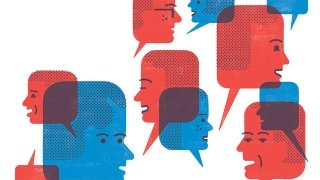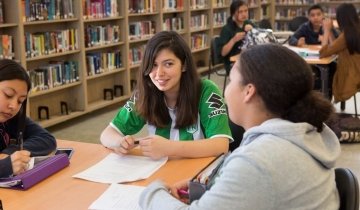Election years are often a good time to engage in difficult conversations with students about how the course content is relevant to elections that will impact existing policies and structures, as well as how students’ own learning in the course relates to their decision-making as voters. Because students have varying political and social perspectives, it is important for educators to create brave spaces that allow for open and respectful dialogue, but that also don’t stay at the surface level and can challenge students’ assumptions and thinking.
First, there are a few preconditions to creating a classroom climate that would be considered a “brave space.” Early in each term, educators can co-construct a set of discussion norms that structure and frame how students relate to and interact with one another. These norms should be revisited throughout the term with an emphasis made on the collective responsibility to uphold them.
The second precondition is that educators should be on the path to developing a mindset and practice of critical reflection. What are the assumptions I have about the topics I might bring forward in class? How do my own positionality and lived experiences shape what I hold dear and how I vote? What are alternative ways of seeing these issues, and how might they make sense to those who see the issue that way? How is the way I view the issue informed by power dynamics? By reflecting on our own thinking and pushing ourselves to see alternative perspectives, we can better anticipate the varying perspectives our students will likely bring to the discussion.
Instructionally, educators can make space for challenging dialogue about the election by asking open-ended, nonjudgmental questions to spur and facilitate discussion. Some of my favorite go-to questions and prompts are: “Tell me more about your thinking.” “Please clarify what you mean by …” “What evidence can you point to that helps support your assertion?” “How have your lived experiences shaped your perspective?” “Are there alternative ways of seeing the presenting issue(s)?”
It is important to note that while questioning strategies might bring about rich dialogue reflecting different perspectives, educators should be ready to critically engage students when their comments reflect misunderstandings and assumptions that perpetuate entrenched inequities.





